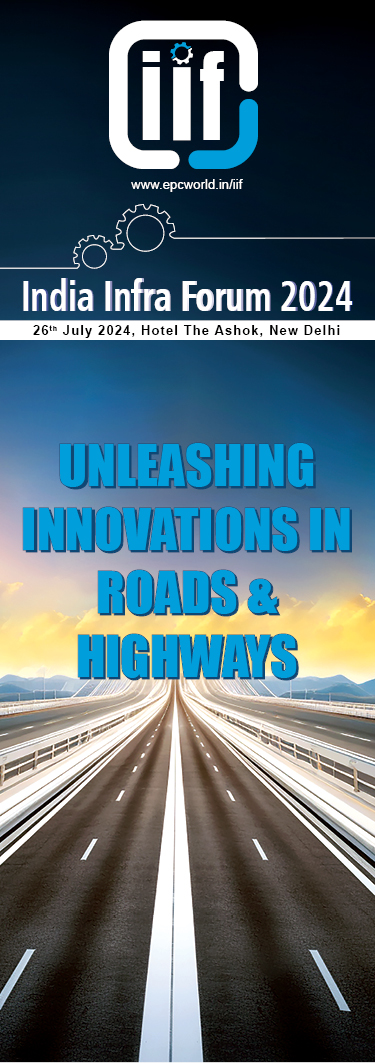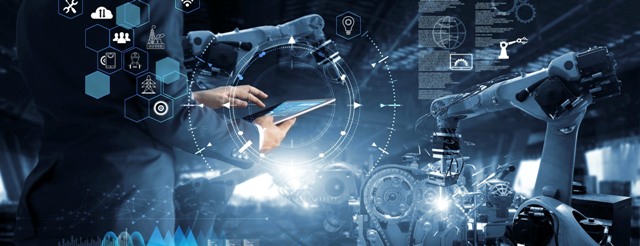The Pandemic has advanced the development of technological innovations. MHE which is playing an important role in sorting and retrieval of essentials from warehouses and cold storages is up for technological advancements to stay relevant. The future belongs to those players who innovate with changing market demand
There are some sectors which have reported positive growth amidst the Pandemic. The Material handling equipment (MHE) sector is one such sector to have reported positive growth. Pandemic followed by lockdown to stop further spread of the deadly virus covid-19 assisted the MHE sector positively. The lockdown restricted the movement of citizens. For most part of the year, the citizens were locked in their homes. Except essential services rest all establishments were closed. The people were left with only option, to buy online. This gave increased impetus to warehousing sectors. “Despite the sharp slowing of economic activity during the lockdown, India’s forklift industry revived late but reached the same level as the year before the lockdown. The major growth drivers have been the pharma, e-commerce and modern retail sectors,” says Anil Lingayat, EVP and Business Head, Godrej Material Handling.
There were plenty of modern warehouses that came up during this period. “During the pandemic, e-commerce and retail industries surged higher and this resulted in the MHE requirement for big, medium and small storage facilities and warehouses. Green and clean energy requirement of electric forklift and battery operated WHE are also seen to be increasing, as more organizations are driving clean energy adoption. The pandemic has brought in the necessity of safer working environment and contactless operation. Also, the online product & service delivery start-ups are in demand during the lockdown periods,” says Sunil K Gupta, President, KION India.
Launches manoeuvring ahead
Warehouses without MHEs are impossible to think about. MHE players time and again during the pandemic came up with technologically advanced MHE to cater to the increasing demand for the warehouses. “There is growing awareness of the positive impact on productivity through the use of material handling equipment in the manufacturing industry. Manufacturers are increasingly focusing on improving efficiency of their material movement, both inbound and outbound, in order to increase outputs and remain competitive. With increased palletization of goods across the industry, the material movement using mechanized handling equipment is much faster and safer. The scarcity of labour, job opportunities available in the service sector and the rising cost of land is driving the demand for forklift trucks even among MSME companies,” says Anil Lingayat. JCB India launched its all-new range of CEV Stage IV compliant wheeled construction equipment vehicles. The range includes the 3DX Plus and the 4DX Backhoe Loaders, the VM117 Soil Compactor, the 530-70 and the 530-110 Telehandlers with Engines complying with the new Emission Norms. For bulk handling, three new wheeled loaders, the 433-4, the 437-4 and the 455-4 were also launched with new engines. While Godrej Material Handling launched the new PRO Series Reach Truck with capacities ranging from 1.4 to 2 tonnes. This Reach Truck offers higher battery capacity, delivering up to 20% additional run time per charge. It comes with fingertip control functions which place all machine controls comfortably within the operator’s reach.
“The recent MHE market demand is on the uptrend. We have witnessed the highest ever MHE market in March 2021 and in Q1 2021. There has been a phenomenal growth in all the product segments primarily driven by growth in e-commerce, pharma, food & beverages industry. Our OM and Linde brand forklifts were engaged in handling key supplies and Oxygen at the times of shortages,” says Sunil K Gupta. According to research report “India Automated Material Handling (AMH) Market - Growth, Trends, Covid-19 Impact, and Forecasts (2021 - 2026)” by ResearchAndMarkets.com’s, the India Automated Material Handling (AMH) Market was valued at USD 1353.8 million in 2020 is expected to reach USD 2739.34 million by 2026 at a CAGR of 12.7% over the forecast period from 2021-2026. The report attributes increase in infrastructure investment by the government and investments from industries, along with 'Make in India' initiative to drive the growth. “Given the growth that we have witnessed at Godrej Material Handling, a business of Godrej & Boyce, we are confident that the industry will continue to grow at least at 8-10% over the next few years,” Anil Lingayat.
Technology at the forefront
The Pandemic which is still ravaging has giving the much need time to think ahead and innovate to suit the requirements post Covid-19. “The pandemic has brought in the necessity of safer working environment and contactless operation. Contact less and safe material handling equipment and solutions shall in turn boost the efficiency. It is crucial to have contactless MHE which are flexible, with longer operational working hour, minimum maintenance and can be installed easily on sites,” says Sunil K Gupta. The MHE industry is investing more on technology such as IoT, AI and driverless operation. “Due to an increase in warehouses the demand for electric material handling equipment has increased,” says Anil Lingayat. Godrej Safelog monitors fleet health, provide proactive or predictive maintenance and optimize fleet size. “At KION Group, investment in technologies with robotics, software and mobility is being approached and the integration of these shall make the data for smart warehouses. Software advances that have enabled robotic applications are machine learning & artificial intelligence, and as these tool sets and software become more available to be interfaced directly with robotic systems, it allows the robots to be more dynamic and finally can learn how to do things better. Dematic, is the world leader in innovative warehouse automation solutions. KION India offers high end technological solutions through its premium brand Linde and Dematic. We offer solutions such as storage and retrieval systems, sorting systems, conveying, AGVs & AMRs to create future smart factories & warehouses,” says Sunil K Gupta.
Government Assistant
Unlike the other manufacturing industries whose associations are strong in putting forth their demands to the government and government bodies, the MHE manufacturers have to tend for themselves. “Material Handling Equipment should be awarded the status of an ‘essential industry’ because it supports all manufacturers, including those making medical and essential goods, in their supply chain. The Indian government fortunately continues to raise emission norms to curb pollution, but it currently applies to equipment Made in India. These should be made applicable to any equipment operating in India, irrespective of its country of origin. Similarly, BIS standards for material handling equipment need revision to reflect developments in more advanced markets and also ought to apply to all equipment sold in India irrespective of country of origin. The safe load that can be lifted by a human being is limited to 20 kg. This needs to be enforced as a law. Standardisation and adoption of pallets is another area where the industry needs to be encouraged. The government is keen to raise safety consciousness and safety standards. Trained and certified operators for all types of powered material handling equipment would serve to dramatically improve safety in the factory and warehouse. The Government can contribute by making such requirements mandatory,” says Anil Lingayat.
On government initiatives for MHE sector, Sunil K Gupta opines, “Government has introduced several structures and capex aid system as a part of Covid-19 relief package to boost Capex investment in infrastructure resulting in positives trend of MHE industry. As in automotive segment, Government has introduced incentives for electric vehicles, similarly, if there is an introduction of similar incentives for MHE, the market shall see benefits in market size and there will be subsequent push in environment friendly equipment. As we are moving towards Industry 4.0, digital initiatives and automation would play a significant role in future operations, and investments shall support the pace towards smart factories and warehouses. This will increase the competitiveness of Indian industries”.
Rental schemes to the rescue
The economy is slowly returning ‘back to normal’ and the MHE players are gearing up in welcoming the back to normal work culture. “The New Normal is the way of life at KION India. Mandatory mask use, social distancing, single seating guideline during travel and periodic temperature and oxygen scans, full sanitization before entry are being followed. Face to face meetings has been restricted and all meetings are being conducted on online mode. Human to human interactions have been kept minimum at the offices & factory production floor as well. Sanitization stations have been installed at every section for easy use. Our Sales & Service personnel are operating digitally and resolving most of the customer concerns remotely. The office and production area are sanitized frequently and adhere to all the health and safety guideline,” says Sunil K Gupta.
Increasing warehouses for e-commerce, food & beverages and pharmaceuticals have increased the demand for MHE equipment. Now with partially lifting of the lockdown the almost fifty percent of the staffs are back to office and on shop floor. The demand for MHE too has increased further. The pandemic followed by lockdown has dented the purchasing power of the customers. MHE manufacturers are working out financial scheme to provide relief to the buyers. “We have tie-ups with most of the major banks for providing financial support to customer to purchase equipment. We offer rental solutions through our brand Linde to support the customers who does not have access to adequate capex. We also have tailored solutions as per need of the customer to fulfil their material handling requirement with minimum investment,” says Sunil K Gupta. While Godrej Material Handling has its RenTRUST, a rentals business, which offers rental options ranging from a month to a couple of years. “We have also tied up with financial institutions for lease or loan options so that our customers have easy and ready access to the best market interest rates. This has helped create a win-win situation for the customers and us,” says Anil Lingayat.
Road Ahead
The Pandemic has changes the buying preference of the customers. Previously, it was the brick and motor stores that were preferred. Now, the preference has shifted to click and buy. The products are delivered to the home. The modern warehouses every length and breadth and every nook is filled to brim. The demands for warehouses are increasing rapidly. “The shift to online buying that resulted out of the pandemic has made e-commerce gain a new, higher level of consumer demand that will persist in the foreseeable future. Moreover, industries were affected by a shortage of labour and today, the need to maintain social distance in the workplace is higher than ever before. Both these factors drove the need to adopt mechanized handling in various forms,” says Anil Lingayat.
According to report “Warehousing Market in India 2021" by ResearchAndMarkets.com's, the warehousing market in India was valued at Rs 1,050 billion in 2020. It is expected to expand at a CAGR of ~14.86% between 2021 and 2025, to reach a value of Rs. 2,028.86 billion by 2025. The report further states “However, with the rising demand for e-commerce activities and doorstep delivery services in the tier-II and tier-III cities, the warehousing sector in India is expected to grow potentially in the coming years”.
Anticipating increased demand KION Group AG has invested in ~Rs. 300 crores in infrastructure development of material handling equipment. “We have set up the advanced Factory at Pune, the largest and modern material handling equipment manufacturing factory in India. The investment on the factory has paid off in the times of the pandemic. And, it helped us in the safe workplace environment which was a pre-requisite to work during the pandemic,” says Sunil K Gupta.
Now, the field is opened for MHE players to grab as much market share as possible. The survival will be only those who innovate with changing demand of the market requirements.






